People Online Are Debating Whether Having A 3-Day Weekend Instead Of A 2-Day One Would Be A Good Idea
Taking rest after working hard is essential to one’s mental health and productivity. That is why we have weekends off and vacations from time to time. And that goes for both mental and physical jobs, because the mind gets equally as tired as the body.
Workweek lengths have been decreasing in the developed world as new technology is introduced and people can invest more time for themselves instead of their work. But maybe we could shorten the workweek even more? Twitter user Kyle Shevlin thinks that that’s what we deserve. His thought vent viral and people got into a discussion over whether it could be possible.
More info: Twitter
Twitter user Kyle Shevlin voiced his opinion that people deserve a 3-day weekend and the tweet went viral
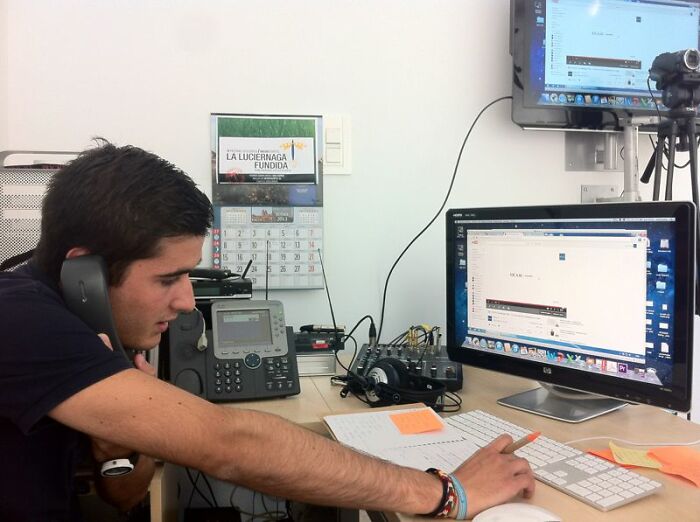
Image credits: MOOC Unit
Kyle Shevlin is a software engineer and writer from Portland, Oregon, USA. Recently he posted a tweet saying that we deserve a 3-day weekend. The tweet went viral with nearly 250k people liking it and almost 800 people joined the discussion.
Bored Panda reached out to Kyle to ask what was his reaction when he saw the likes growing and growing. He said that he had posted some tweets previously that had 5-digit numbers of likes, but not quite like this. He told us that it was incredible to see the response it got as it was shared on some very popular meme accounts.
For him, it is hard to tell if a tweet will get much attention, but when this one got hundreds of likes in the first five minutes, Kyle had a hunch that it could get quite big. But he has a habit of turning off notifications when a tweet is getting popular, so he can control when he interacts with it, and it took some time before he realized how many people were liking it.
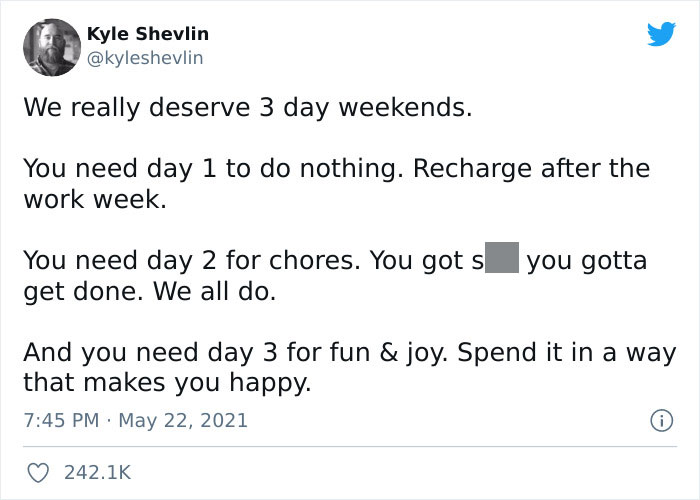
Image credits: kyleshevlin
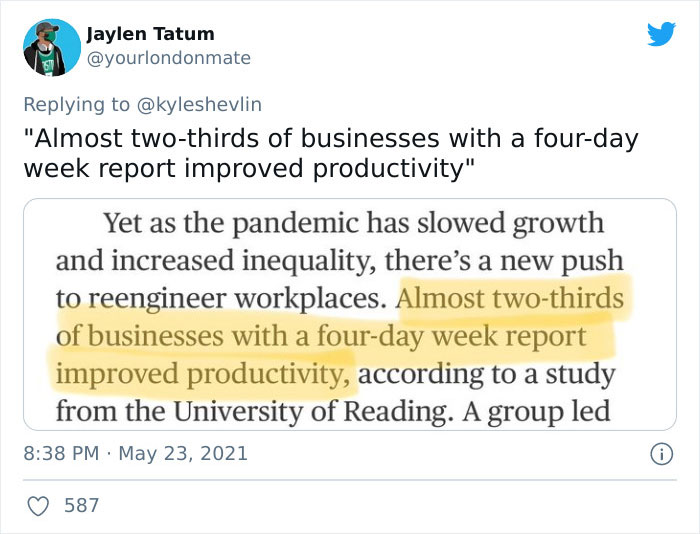
Image credits: yourlondonmate
Kyle breaks down why specifically 3 days and what they could be used for
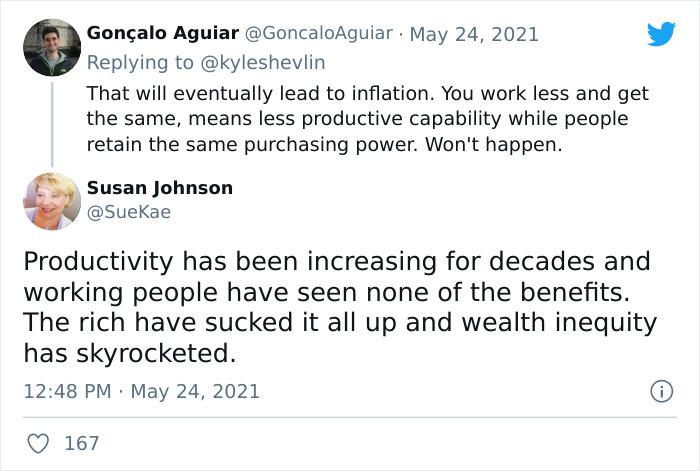
Image credits: SueKae
Why 3 days? In the tweet Kyle expressed that the 3 days could be used like this: one day would be dedicated for doing just nothing and recharging after the week. For the second day, you could do all those things that need to be done and there’s no helping with that. And of course, one day should be spent doing something fun and enjoyable.
Kyle told us that he wrote the tweet on a Saturday morning, which is the time he spends drinking coffee, watching videos on YouTube or playing video games, nothing too serious, until he can no longer put off doing chores and other work around the house.
But the thought about a 3-day weekend didn’t come out of the blue. “I have been thinking about 3-day weekends and a sub-40-hour work week for a long time. I am someone who loves learning, reading, or listening to whatever I can about economics and the social sciences. I frequently think about how my economic activity intersects with other disciplines, like anthropology or neuroscience. For example, as a software engineer, most of my work involves thinking about problems and synthesizing information into a solution. I find that there are better times during the day than others for me to do this work optimally. Why is this the case? It turns out that there’s a good amount of research about circadian rhythms and their effects on our productivity. What can I learn from that? For me, I have come to realize that I have about 6 good hours in me each day where I’m working at my best. Working beyond that means I’m not working at my best.”
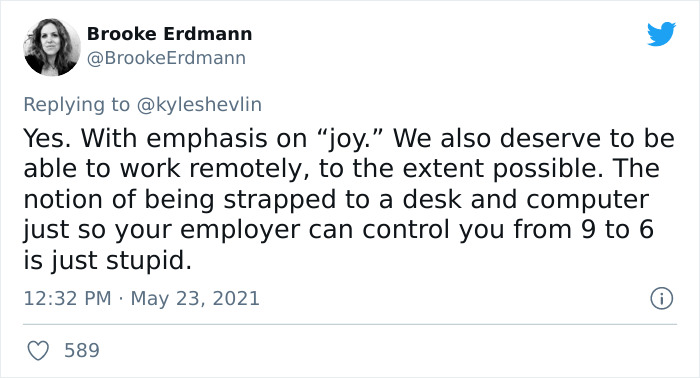
Image credits: BrookeErdmann
People in the comments who have experienced this kind of working routine say that they couldn’t go back
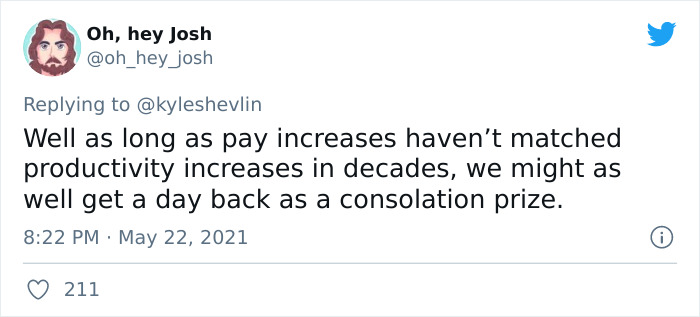
Image credits: oh_hey_josh
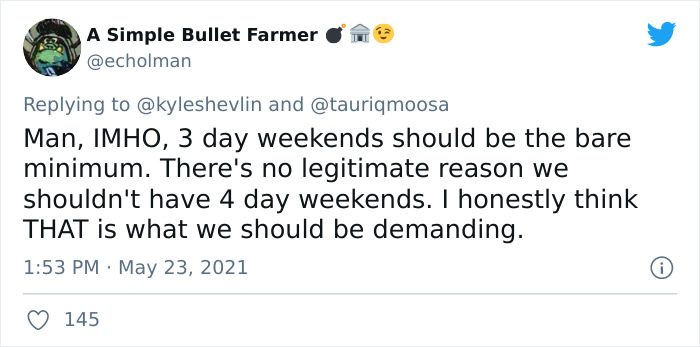
Image credits: echolman
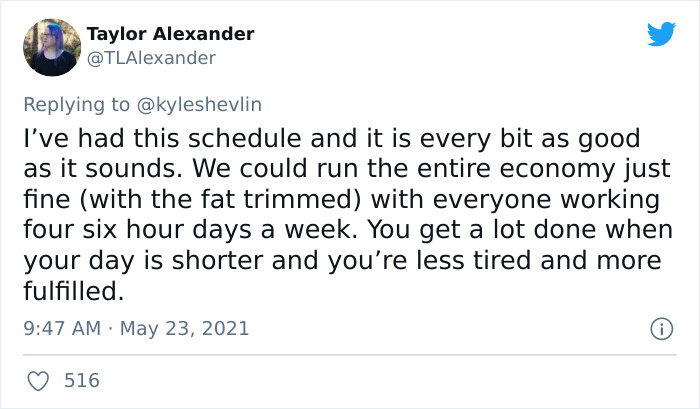
Image credits: TLAlexander
He also adds that it’s not just him and there are studies to support this. Kyle isn’t wrong. For example, Sweden is one of those countries that has experimented with a six-hour workday. In the city of Gothenburg, 70 nurses got their workday shortened from eight to six hours. At the end, it was found that their health was better than those who worked eight-hour shifts, they took significantly less sick days, they had more energy, and were equally productive.
Steve Glaveski conducted a two-week experiment with his team at Collective Campus, an innovation accelerator based in Melbourne, Australia. It turned out that the team was forced to prioritize more effectively and limit interruptions, but they maintained the quantity and quality of their work. What is more, employees reported that they felt better mentally and had more time to spend with family and friends.
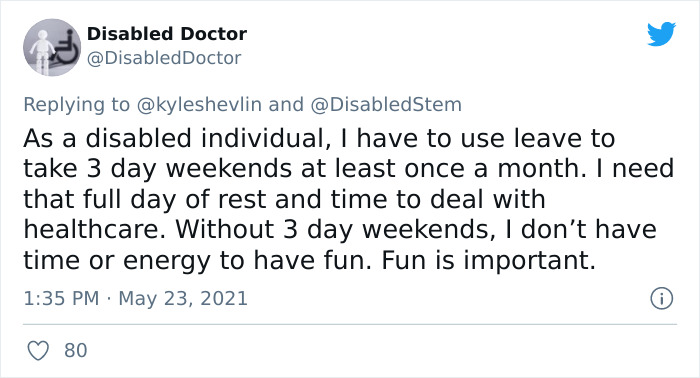
Image credits: DisabledDoctor
Kyle said that a longer weekend is possible and there are various studies that conclude that it is more beneficial to the employee and employers don’t suffer from it that much
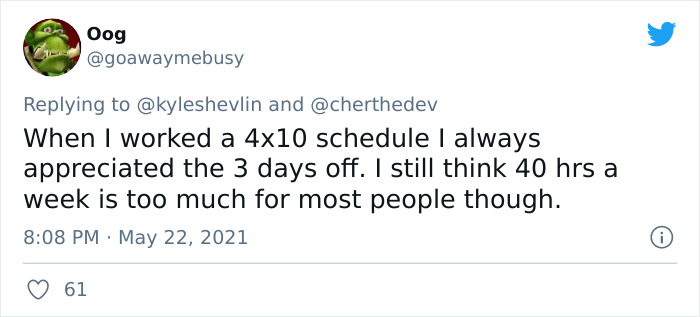
Image credits: goawaymebusy
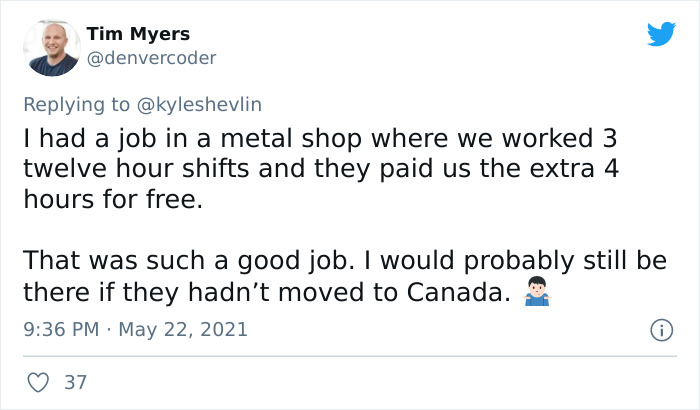
Image credits: denvercoder
We asked if Kyle thinks that people would still get the work that is expected from them done in time if they worked less time. Kyle didn’t hesitate: “I think we expect an unreasonable amount of productivity out of people. I think this is a systemic problem with many variables and a lot of people’s political and personal identities are tied up into it. You can see this just by looking at the responses to my tweet. There’s a subgroup of people who tie their personal self-worth so strongly to their ability to work and produce that they can’t fathom that we can create a world where we don’t need to produce so much.”
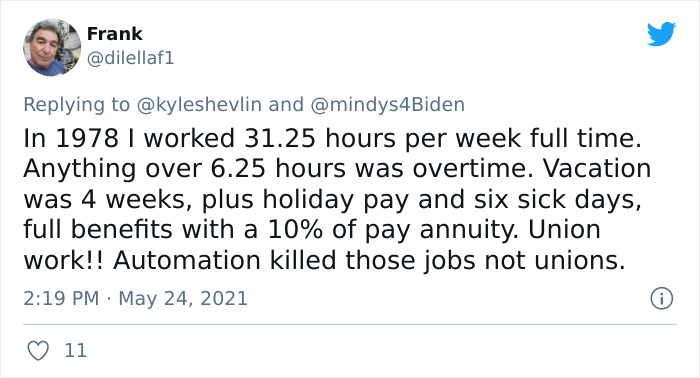
Image credits: dilellaf1
Also, in Kyle’s opinion, expectations from the workers should get lower and he believes that they will, whether we want it or not
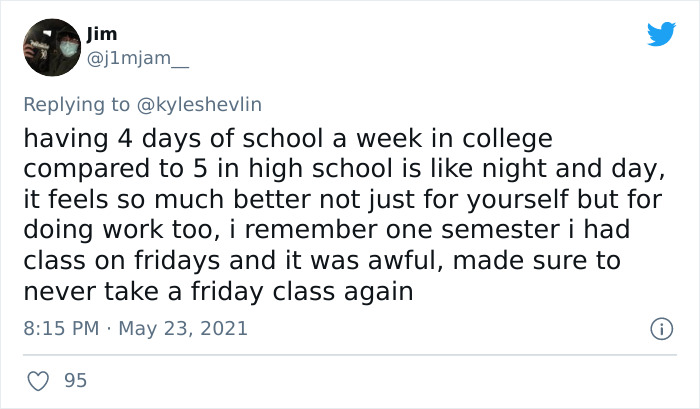
Image credits: j1mjam__
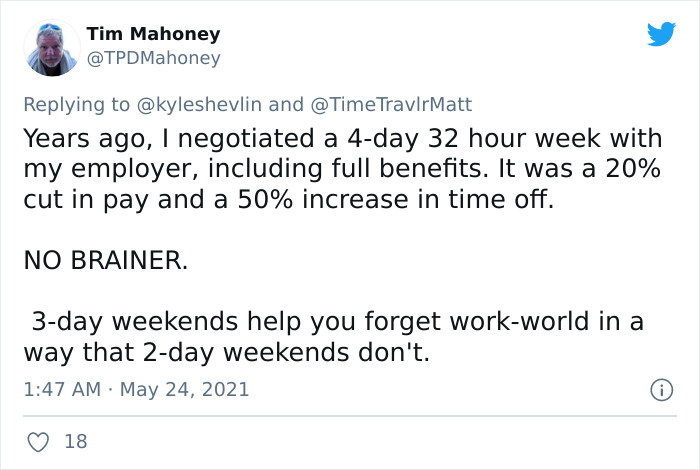
Image credits: TPDMahoney
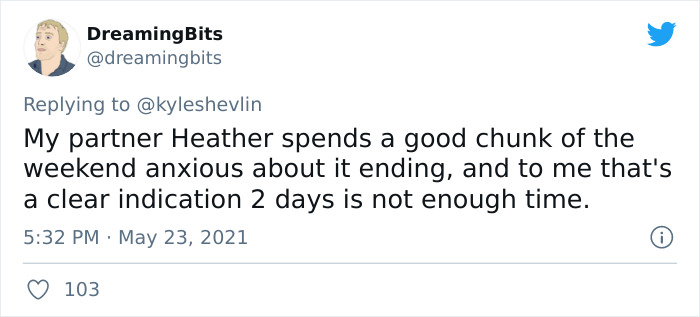
Image credits: dreamingbits
He also added, “The economist John Maynard Keynes believed we could increase productivity to a degree that we would achieve a 30-hour work week. Economists believed that computers would revolutionize productivity to the point it cut our work week in half. All of these economists were partly right. You can have a shorter work week, if you’re willing to reduce the rate of innovation, maintain a ‘lower’ quality of life, and more importantly, our consumerist need for everything to constantly improve.”
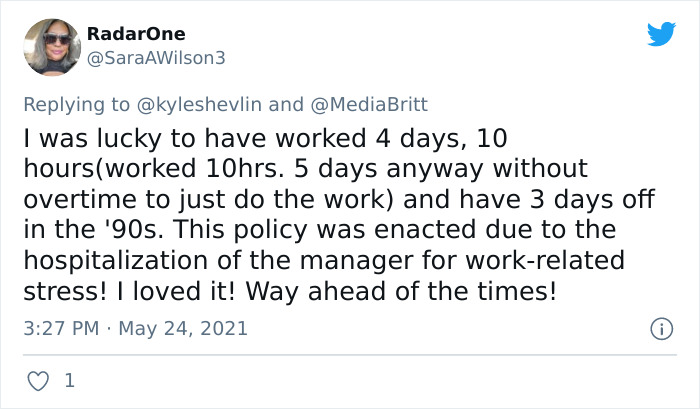
Image credits: SaraAWilson3
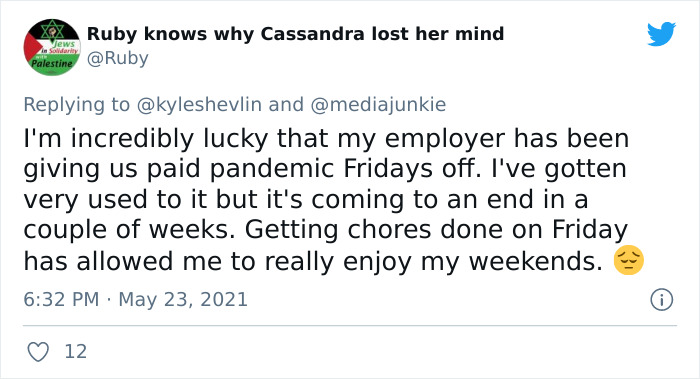
Image credits: Ruby
Kyle predicts that the workweek will get shorter and while humans will be replaced by machines, universal basic income will become a thing
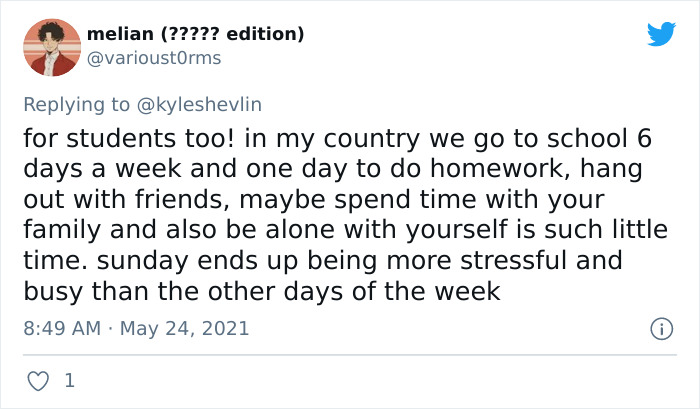
Image credits: varioust0rms
Continuing about the expectations employers have from their employees, Kyle thinks that they will change whether we want it or not. “I’m not sure we will ever change our expectations willingly, but with how disruptive automation is likely to be over the next 50 years to our workforce, I think you may see expectations change drastically whether we want them to or not.”
He predicts that in the future, people will be replaced by machines and they will not have new sectors to go to work in. So in his opinion, it could lead to “a 20-hour work week and universal basic income simply as a means for all of us to survive or participate in economic life together.”
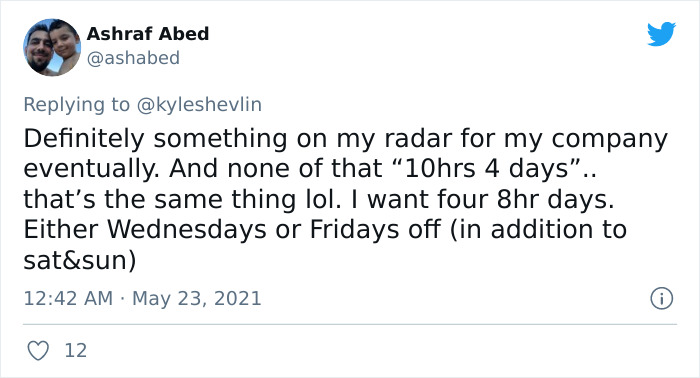
Image credits: ashabed
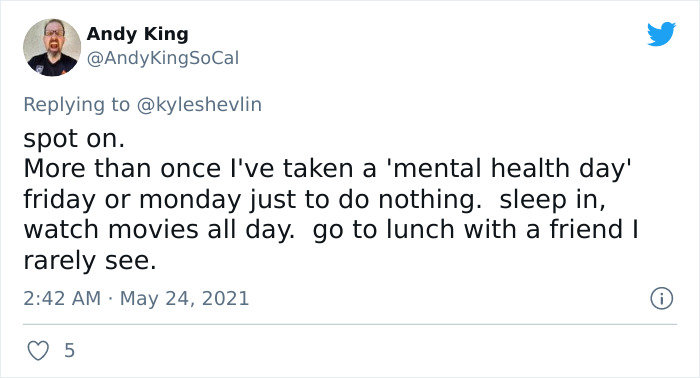
Image credits: AndyKingSoCal
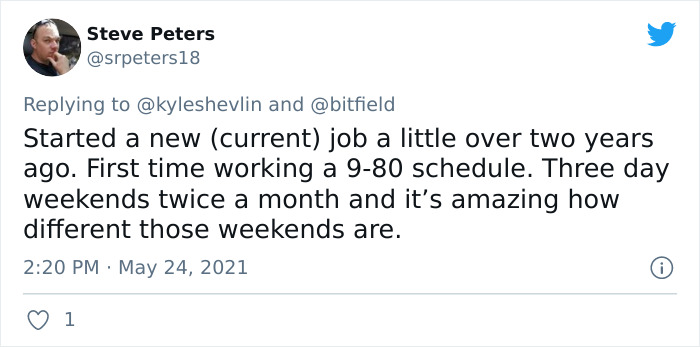
Image credits: srpeters18
Kyle, who loves learning about economics and the social sciences, observes that the world is in a place where reducing onus on the laborers is the next step
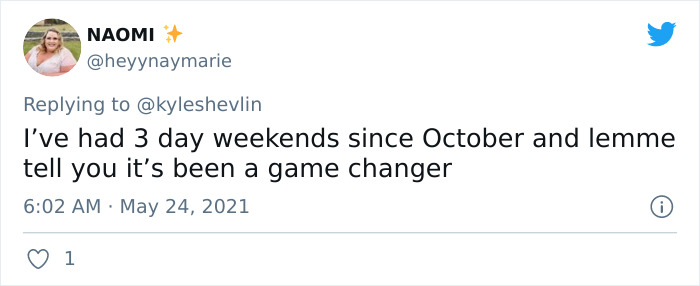
Image credits: heyynaymarie
Kyle repeats what he said in the tweet that people deserve more time off to enjoy their lives. And he thinks that is completely possible, “There is more than enough wealth and resources in the world to reduce the onus on the laborers of the world to produce. Accomplishing this requires fairer distribution of wealth and resources. Some will argue that competition is fair and there has to be winners and losers, but I think the next socio-economic era for humans recognizes that we are a global society and our actions and expectations must match that recognition.”
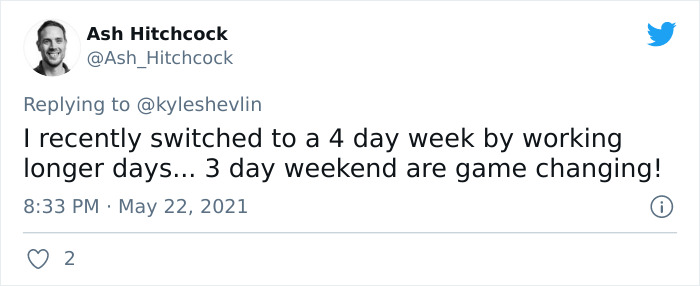
Image credits: Ash_Hitchcock
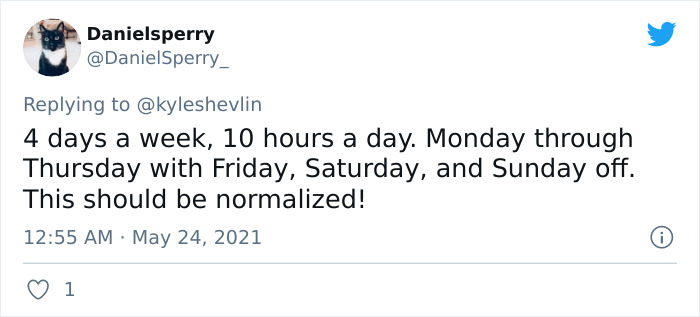
Image credits: DanielSperry_
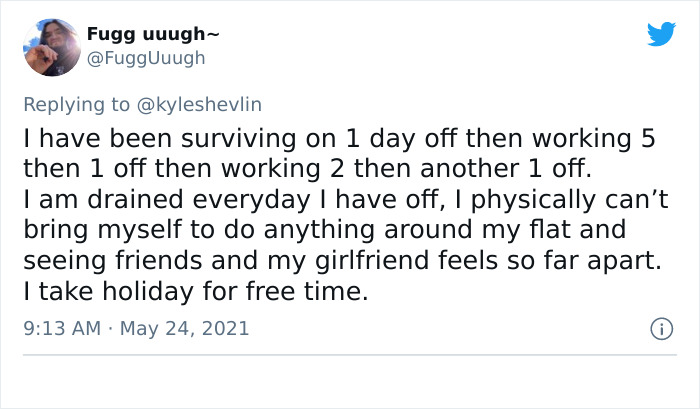
Image credits: FuggUuugh
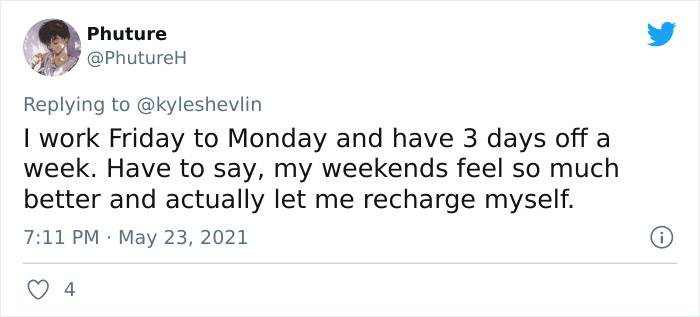
Image credits: PhutureH
Some companies are already considering shortening the workweek or the workday, and some are conducting experiments and are getting positive results. Also, we came a long way from working 12 hours a day, 6 days a week, so maybe it could be that the time has come to make a change again.
What do you think of this topic and do you agree with Kyle? Maybe you already have experience with reduced work time and can give us some personal insight? Let us know in the comments!
And if you would like to see more from Kyle, his Twitter account is @kyleshevlin. He has a professional page, kyleshevlin, if you’re interested in software engineering.
The post People Online Are Debating Whether Having A 3-Day Weekend Instead Of A 2-Day One Would Be A Good Idea first appeared on Bored Panda.

No comments